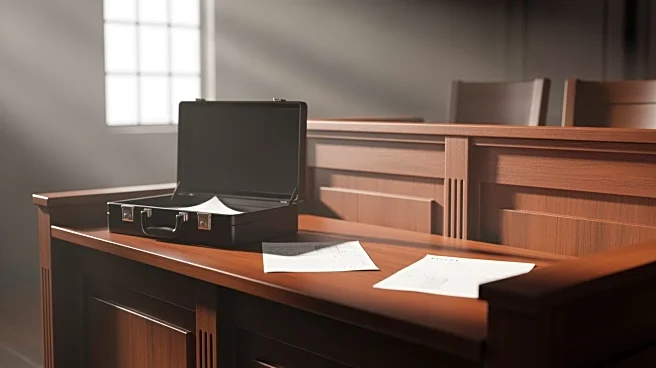What's Happening?
Latham & Watkins LLP has been disqualified from representing Inspire Medical Systems Inc. in a patent dispute against Nyxoah SA. The decision was made by Magistrate Judge Eleanor G. Tennyson of the US
District Court for the District of Delaware. The disqualification stems from Latham's previous involvement with Nyxoah's stock offering underwriters, during which the firm gained access to confidential information. Nyxoah, a Belgium-based company, is involved in a legal battle with Inspire over alleged patent infringements related to sleep apnea therapy devices. Nyxoah claims that Latham's representation of Inspire is improper due to the confidential information Latham obtained during its four-year relationship with Nyxoah's underwriters. Despite Latham's argument that it had no fiduciary or attorney-client relationship with Nyxoah, the court found that the appearance of impropriety was significant enough to warrant disqualification.
Why It's Important?
This case highlights the complexities and ethical considerations in legal representation, particularly when a law firm has access to confidential information from a party it later opposes in court. The disqualification of Latham & Watkins underscores the importance of maintaining ethical boundaries and avoiding conflicts of interest in legal practice. For Inspire, the ruling means they must seek new legal representation, potentially affecting their strategy and timeline in the ongoing patent dispute. For Nyxoah, the decision is a significant legal victory, as it prevents their confidential information from being used against them in court. This case may set a precedent for how courts handle similar conflicts of interest in the future, impacting how law firms manage their client relationships and confidentiality agreements.
What's Next?
Inspire Medical Systems will need to secure new legal counsel to continue its patent litigation against Nyxoah. This change could delay proceedings and require adjustments to their legal strategy. Nyxoah, on the other hand, may leverage this ruling to strengthen its position in the ongoing legal battle. The case is still in its early stages, and the outcome could influence future patent disputes, particularly those involving complex relationships between law firms and their clients. Stakeholders in the legal and business communities will likely monitor this case closely for its implications on legal ethics and patent law.









